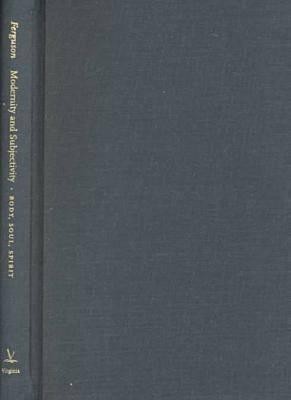Modernity and Subjectivity(English, Hardcover, Ferguson Harvie)
Quick Overview
Product Price Comparison
Few concepts have come to dominate the human sciences as much as modernity, yet there is very little agreement over what the term actually means. Every aspect of contemporary human reality - modern society, modern life, modern times, modern art, modern science, modern music, the modern world - has been cited as a part of modernity's distinctive and all-embracing presence. But what is the exact nature of the reality to which the term ""modern"" refers? Has not such a promiscuous, ill-defined concept come to obscure and confuse rather than clarify a genuine understanding of our experience? This work proposes a new view of modernity, arguing that although it may variously be associated wtih the Renaissance, the European discovery of the New World, the Reformation, the Industrial Revolution, and many other significant ruptures with primitive or premodern society, modernity fails as an idea if it only defines itself against what it replaced. Instead, the author proposes that modernity finds its clearest definition through an exploration of subjectivity. For the modern world there is no higher authority than experience. No longer is the human world subordinate to a divine reality beyond the capacity of its own senses. This idea finds its greatest expression in the philosophy of doubt originated by Descartes. Doubt seemed the radical starting point from which to found a wholly modern philosophy that makes the distinction betwen subject and object, but those who came after Descartes soon reached the limits of self-discovery and became trapped in deepening levels of despair. This despair in turn found expression in the concepts of self and other, and eventually in a dialectic of ego and world, which distinguishes and links together the most important social, cultural and psychological aspects of modernity. Moving beyond these dualities of subject and object, mind and body, ego and world, and replacing them with the triad of body, soul and spirit, Ferguson redraws the map of contemporary experience, finding links with the premodern world that modernity's self-founding concealed.


